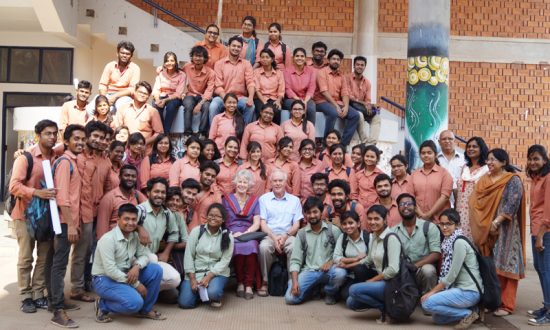Teaching architecture entails a teacher to teach students to put their creative ideas through the grind in order to come out with the perfect creation. Therefore, a teacher of architecture, within a classroom, cannot merely limit themselves to teach the basics but must also act as a mentor. However, in the present Indian education environment, where more than 30 students are crammed into a classroom, the teacher is left to grapple with time and juggle student priorities to advantageously meet the creative and educational requirements of all the 30. In this scenario, there are only a few educational institutions that keep their focus on quality education at all times. One of these is Piloo Mody College of Architecture, Cuttack.
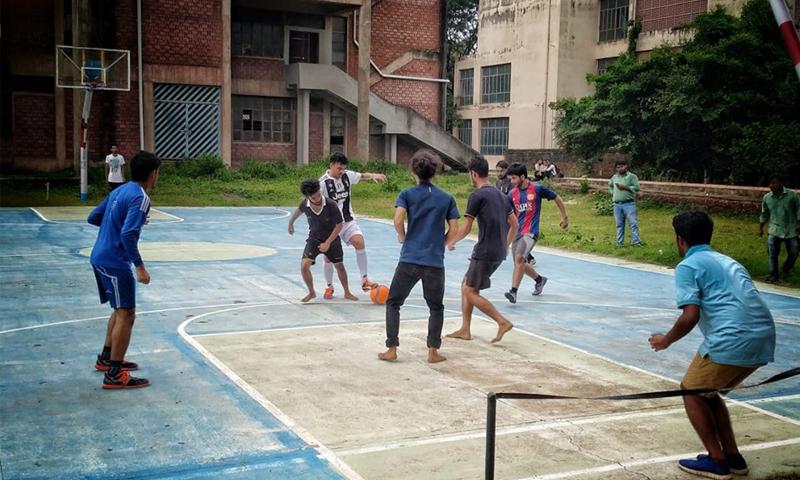
Adhering to a 1:10 Students to Teachers ratio in the classrooms, Piloo Mody College of Architecture ensures that the teachers are always available to help students. Moreover, personal interaction and mentoring are provided to the students by faculty proctors beyond classroom hours. Besides, PMCA offers electives, taught by specifically trained faculty, that cater to the students’ varied interests. The students are also driven by the faculty to participate in various national and international competitions. “The academic needs of the students are addressed in the classrooms experientially and collaboratively with intense discussions, seminars, group discussions, innovative assignments, as well as traditional classroom delivery of instructions,” says Ar. Payal Mohapatro, Director, Piloo Mody College of Architecture.
Maintaining Masterful Mentors
Mentors at PMCA are expected to showcase, besides empathy, self-discipline, patience, and adaptability to the situation, academic initiative, innovative approach, an affinity for current affairs and recent developments in the industry, research orientation, presentation skills, and an ability to act as an interface between the students and the industry. They are encouraged to constantly upgrade their skill sets to keep up with industry trends by attending seminars, workshops, and courses.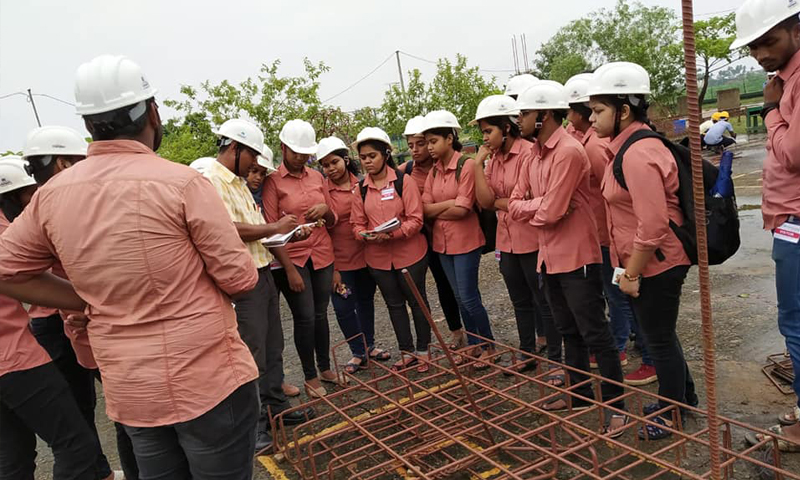
“Our faculty must complete SWAYAM courses by MHRD related to their areas of interest/research. They are also encouraged to take up higher studies and pursue certification programs of IGBC, GRIHA, etc. They are expected to take part in the Faculty Development Programmes organized by COA and the social development programs (involving habitat design such as Park development with disability access etc). The mentors will also be subject to a strong student feedback system where even the opinions of the weakest of students are considered by the faculty,” says Prof. Dharitri Das, Principal, Piloo Mody College of Architecture, Cuttack.
Established by Late Ar. K. B. Mohapatra, with a vision to build an Institution of International standards at Cuttack, the 1000-year-old Millennial city, Piloo Mody College of Architecture, Cuttack, has been going full steam ahead for the past 25 years and has been recognized as a premier Institution of Architecture in the country. Offering B. Arch (5 years) and Exec. M. Arch (3 years) programs, PMCA ensures that the curriculum is regularly revised and is curated by the best academicians in the Industry. The curriculum caters to the strict standard of BPUT, of which PMCA is an affiliated institution. PMCA also offers several new and innovative electives that cater to the latest and fast-developing emerging areas in the built environment.
PMCA deftly weaves in regular hands-on workshops by industry stalwarts from Laticrete, Pidilite, AAC, etc and seminars by eminent professionals and academicians as a part of the teaching process. These initiatives lay a strong foundation for influential network and interaction opportunities between the industry and students and bring industry experience and the knowledge of the latest by-laws, trends, and innovations to the campus. Similarly, site visits and study tours are conducted every year to historically significant places. These visits are an essential part of the curriculum and are appropriately mixed with other modes of teaching.
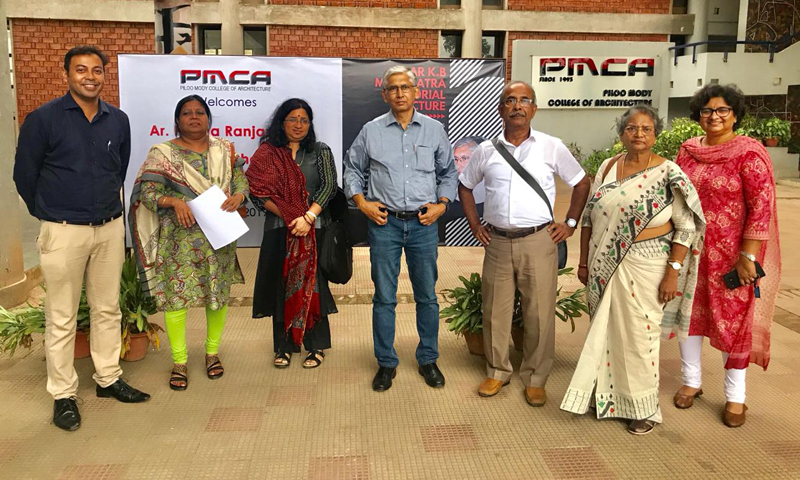
PMCA also encourages students to attend webinars and MOOCs as part of the teaching-learning process and inspires students to utilize self-learning resources, including online courses available on the internet and home assignments. Along the same lines, PMCA also organizes vertical studios at the beginning of each session that hones the creativity and innovative capacity of students through challenging assignments/ live projects. This studio also encourages teamwork and peer learning across semesters. Moreover, teaching students to actively take part in sustainable living, PMCA advocates its students to organize community engagement activities for environmental awareness like Save Water, Save Earth initiatives.
Nurturing Successful Industry Collaborations
Thanks to PMCA’s fruitful collaborations with the industry, the students find it quite easy to land the mandatory 6-months apprenticeship with various top architectural consultancies in the country in the penultimate semester. PMCA graduates also get an opportunity to engage themselves with the Summer Studio project and Learning Exchange programs with international universities and attend workshops at Auroville, Pondicherry on Sustainable Architecture. It is also a matter of pride that PMCA is a Partner Institute of IGBC (India Green Building Council).
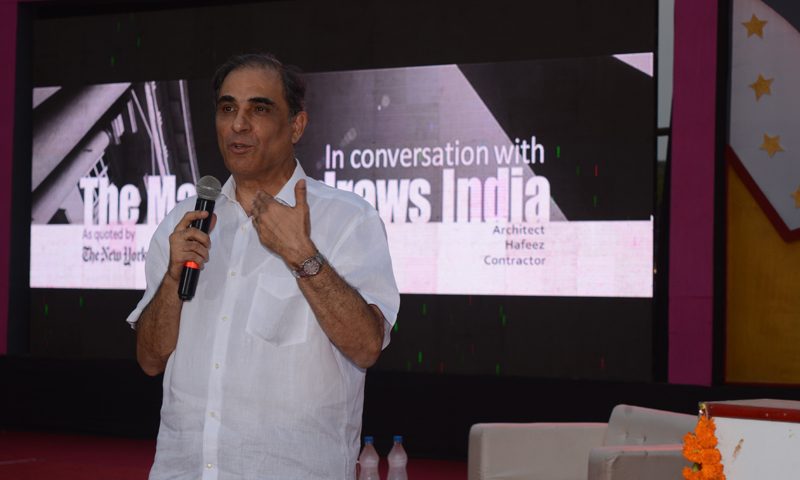
Additionally, PMCA also provides an avenue for students to engage in disaster mitigation related research activities with SEEDS, New Delhi. Furthermore, a group of students was engaged by the Bhubaneswar Development Authority for providing light and quick solutions for different city beautification projects at Bhubaneswar before the Hockey World Cup 2018. Our PG students have collaborated in Slum Upgradation schemes in Cuttack and Bhubaneswar along with different NGO partners.
“With PMCA students securing the University Gold Medal for Best Graduate for the past 4 years and its faculty winning the University Best Researcher Award, it is no wonder that PMCA has been made a Nodal Centre for Research under BPUT this year”, says Dr. Santosh Misra, Professor, PMCA and Dean, Architecture, BPUT. “Clubbing these victories to the ones such as being mentioned in the World Architecture Festival, where the work of 3 students has been shortlisted for their project titled Adiganga: From a Sewer to a Storyteller, PMCA is achieving milestones after milestones,” he adds.
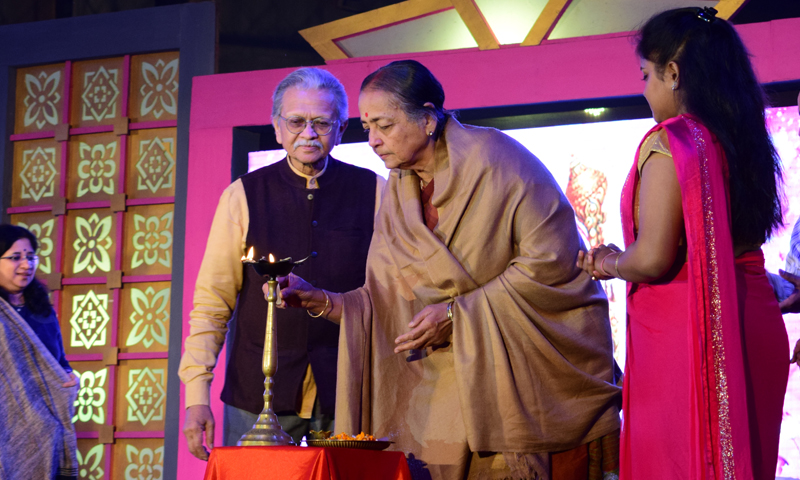
Setting its eyes forward, PMCA sails ahead to continue providing quality education and shaping architectural professionals who can make a change in the society. PMCA also plans to continue its research activities to develop skills on Sustainable Development Goals on (SDGs) of the UN and enable our students in such design skills. Piloo Mody College of Architecture also envisions collaborating with Global Leaders in Architecture Education to provide its students with a truly global perspective.




